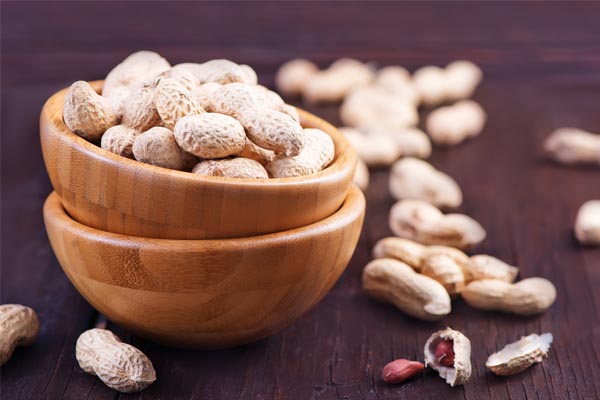Kids who live with peanut allergies, which can have consequences ranging from annoying to fatal, now have an approved form of pharmaceutical relief, the FDA announced Friday night.
Palforzia Allergen Powder by Aimmune Therapeutics is designed to limit the damage done when children from 4 to 17 years old with allergies get accidentally exposed to peanuts.
Note the “accidentally exposed.” Kids with peanut allergies can’t start scarfing peanut butter and jelly sandwiches. Peanuts should still remain a no-no, the FDA warns.
Also, the FDA says, those with “uncontrolled asthma” can’t take Palforzia.
“Peanut allergy affects approximately 1 million children in the U.S. and only one out of five of these children will outgrow their allergy. Because there is no cure, allergic individuals must strictly avoid exposure to prevent severe and potentially life-threatening reactions,” said Dr. Peter Marks, director of the FDA’s Center for Biologics Evaluation and Research. “Even with strict avoidance, inadvertent exposures can and do occur.”
This approval doesn’t mean Palforzia’s as freely available as, say, Percocet. To cut down on the risk of the worst allergic reactions—Palforzia is a powder made from peanuts—it’s being released under the FDA’s Risk Evaluation and Mitigation Strategy (REMS).
“Palforzia will only be available through specially certified healthcare providers, health care settings, and pharmacies to patients who are enrolled in the REMS program,” the FDA said. Here are the details:
Doses: Daily during the Maintenance phase, which is the third phase. That can be done at home, but the first two phases have to be done with a healthcare professional in a healthcare office or facility. The first phase, Initial Dose Escalation, happens on a single day. The second phase, Up-Dosing, takes several months of 11 increasing dose levels.
Safety testing: Two double-blind, placebo-controlled studies, 700 people with peanut allergies. Side effects were abdominal pain, vomiting, nausea, tingling in the mouth, itching, cough, runny nose, throat irritation and tightness, hives, wheezing and shortness of breath and anaphylaxis (serious, life-threatening allergic reaction).
Effectiveness testing: Randomized, double-blind, placebo-controlled tests on 500 people in the United States, Canada, and Europe. After six months of maintenance with Palforzia, how many could take 600mg of peanut protein with no more than a mild allergic reaction? The placebo group came in at 4%, while the Palforzia group came in at 67.2%.

